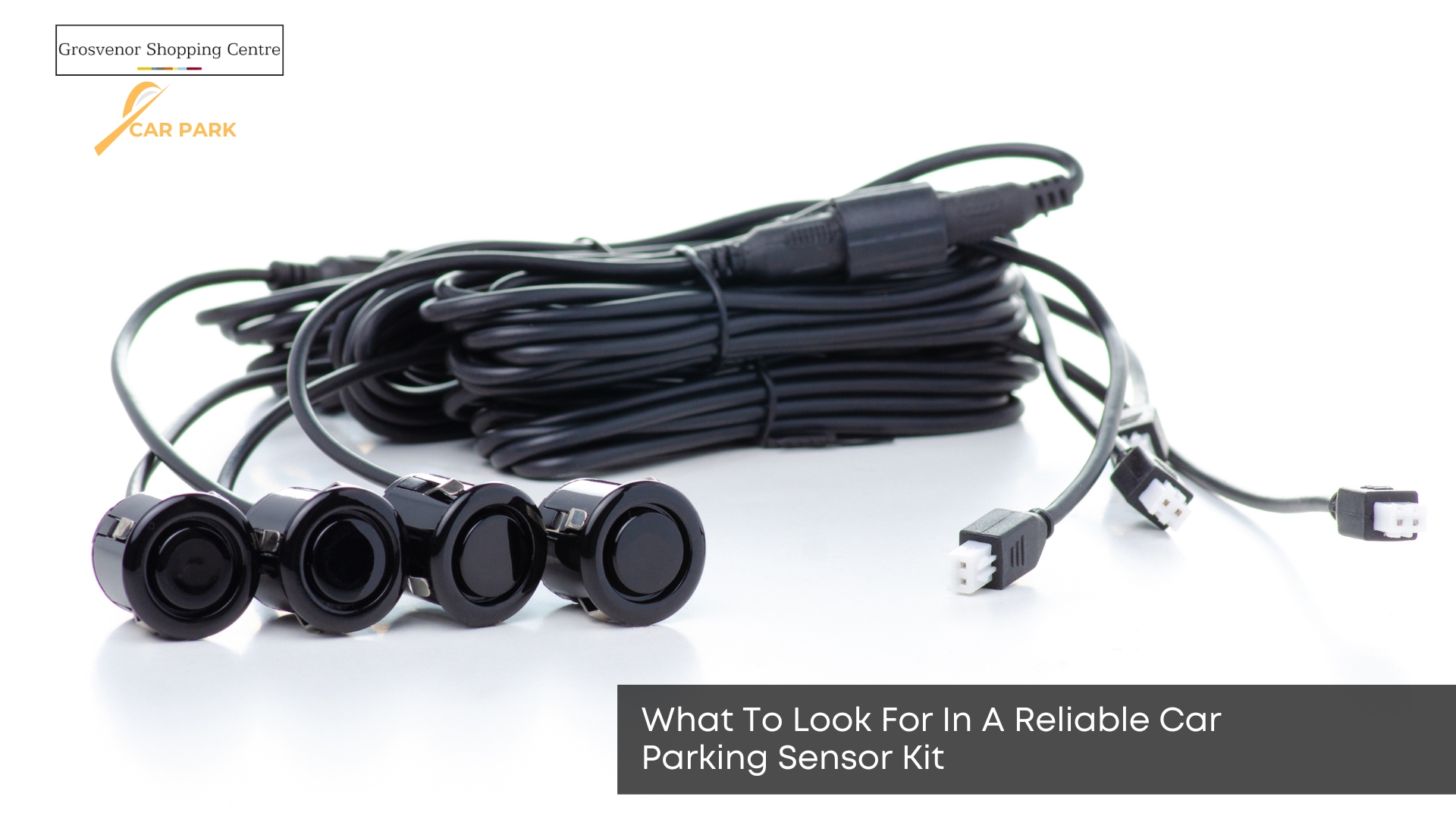A car parking sensor kit helps drivers avoid bumps, scrapes and guesswork when parking. It warns you about nearby obstacles using sound or visual signals, making tight spots safer and less stressful. With numerous kits available, it’s essential to select one that suits your car and performs optimally in all conditions. In the sections below, we break down what to look for in a reliable parking sensor kit, from sensor types and features to fitting, pricing and more.
What Is a Car Parking Sensor Kit?
A car parking sensor kit is a system comprising small sensors, a control unit, and alerts that help detect obstacles while parking. Most kits use either sound, lights, or a screen to warn drivers when they are too close to an object. The sensors are often fitted on the rear bumper, front bumper or both. These kits are useful in tight spots, narrow streets and crowded car parks. Knowing how they help can make a big difference in everyday driving.
How Do Parking Sensors Help You Park Safely?
Parking sensors help you park safely by warning you when you approach walls, posts, or other vehicles. They reduce blind spots and make it easier to avoid bumps, especially when reversing. The alert system gives you more time to stop or adjust your movement. This can prevent damage to your car and help you avoid costly repairs. The way these sensors work depends on the type of system you choose.
What Types of Parking Sensor Kits Are Available?
There are two main types of parking sensor kits: ultrasonic and electromagnetic. Ultrasonic kits use sound waves to measure the distance between your car and objects nearby. Electromagnetic kits create a field that detects movement close to your bumper. Some kits are wired into your vehicle, while others are wireless or even solar-powered. Each type has its pros and cons, which brings us to the next important choice.
Should You Choose Ultrasonic or Electromagnetic Sensors?
Ultrasonic sensors are more common and generally offer a better range, as well as sound-based warnings. They work well for detecting solid objects but may struggle with small or soft items. Electromagnetic sensors are easier to install and cover more surface area, but can be slightly less precise. Your choice may depend on your budget, driving habits and the type of parking you do most often. Where you place the sensors also affects their performance.
Where Should Sensors Be Installed for Best Results?
Sensors should be installed evenly across the rear bumper and, if needed, on the front as well. Rear sensors are most useful when reversing, while front sensors help in tight forward parking. Correct spacing ensures full coverage without blind spots. Placing sensors too low may cause false alerts from kerbs or ground dips. Good placement also enhances the system’s ability to operate in various environments.
How Accurate Are Parking Sensors in Different Conditions?
Parking sensors are generally accurate but can be affected by rain, dirt, snow or extreme sunlight. Wet weather may cause false alerts, and muddy sensors may not accurately detect objects. High-quality kits are designed to reduce these problems with weatherproofing and auto-adjustment features. Keeping the sensors clean helps improve accuracy. Accuracy also depends on your vehicle type and its shape.
Do Parking Sensors Work Well with All Vehicle Types?
Yes, parking sensors can be used with most cars, vans, and SUVs; however, some models may require additional sensors or special brackets. Larger vehicles often need more sensors to cover wide bumpers or blind spots. Some kits are designed specifically for long or tall vehicles, with wider detection angles and louder alerts. Always check compatibility before buying. With the right fit, the next consideration is what features make a kit truly reliable.
What Features Make a Sensor Kit Reliable?
A reliable parking sensor kit should have waterproof sensors, adjustable volume, and a stable power connection. Look for systems with visual displays or voice alerts if you prefer more detailed warnings. Good kits come with clear fitting instructions and tested performance ratings. Additional features, such as self-checking sensors and adjustable detection ranges, can also provide peace of mind. A well-made kit should last for years without frequent faults or replacements. Some taller vans or SUVs may also need additional sensors depending on their design, which is worth noting if you often park in city locations like car parks in Chester.
Is It Better to Install Sensors Yourself or Hire a Professional?
It depends on your confidence with car electrics and tools. Still, many drivers prefer professional help for a clean and accurate installation. DIY kits may come with full guides, but mistakes in placement or wiring can affect performance. A trained installer can ensure sensors are placed at the right angle and connected safely to the vehicle’s power. This is especially useful if your car is tall or if you use spaces with limited clearance, understanding UK car park height restrictions is a smart next step. While it adds to the cost, it also helps avoid problems later. After fitting, price is often the next big question.
How Much Do Reliable Sensor Kits Usually Cost?
Reliable sensor kits typically cost between £40 and £150, depending on features, brand and whether they include front and rear sensors. Kits with visual displays or wireless units are usually more expensive. Installation adds £50 to £100, depending on the vehicle and labour time. Going too cheap can lead to poor accuracy or a short lifespan. Spending a bit more often means better build quality and support, especially when avoiding common mistakes. If you often park for long periods in city centre locations, combining a good sensor kit with all-day parking in Chester can improve safety and peace of mind.
What Are the Common Mistakes to Avoid When Buying?
Common mistakes include buying kits that are not compatible with your vehicle or choosing low-cost products with poor reviews. Some drivers forget to check if the sensors are waterproof or suitable for UK weather. Others skip reading the manual and place sensors incorrectly, leading to constant false alerts. Buying from trusted suppliers with warranties helps avoid these issues. With all this in mind, the final step is deciding what’s right for your needs.
How Do You Know If a Sensor Kit Is Right for You?
You know a sensor kit is right for you if it matches your vehicle type, driving habits and parking environment. Look for a kit that fits your budget without cutting corners on quality. Ensure it includes the correct number of sensors and features that suit your style, whether that’s simple beeps or a full visual display. A good kit will make parking easier, not harder. Once fitted and tested, a reliable sensor kit can bring peace of mind every time you reverse.


Leave a Reply